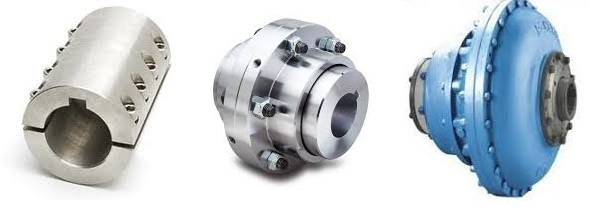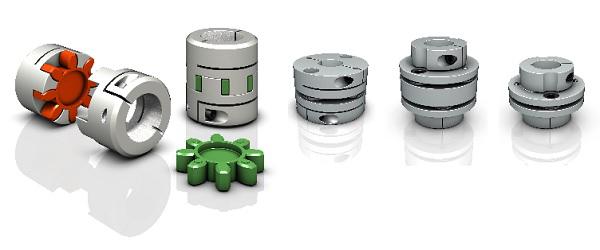Torque Limiting Shaft Coupling
Introduction to Torque Limiting Shaft Coupling
Torque limiting shaft couplings are sophisticated mechanical devices designed to protect machinery from overload conditions by limiting the torque transmitted in a drive system. These couplings disengage or slip when a pre-set torque level is exceeded, preventing damage to equipment.
Mechanics Behind Torque Limiting Coupling
The functionality of torque limiting couplings is grounded in physics and engineering principles. Typically, they incorporate mechanisms such as spring-loaded detents, friction plates, or ball and roller clutches to achieve torque limitation.
Applications of Torque Limiting Shaft Couplings
These couplings are crucial in various industrial applications, including packaging machinery, conveyor systems, and automotive assemblies. Their ability to avert mechanical failure makes them indispensable in these sectors.
Advantages of Using Torque Limiting Couplings
Using torque limiting couplings offers numerous benefits, including enhanced equipment longevity, reduced maintenance costs, and increased safety. They act as a safeguard against mechanical overloads.
Types of Torque Limiting Shaft Couplings
There are several types of torque limiting couplings available, each suited for specific applications. The primary types include friction torque limiters, magnetic torque limiters, and shear pin torque limiters.
Friction Torque Limiters
Friction torque limiters use friction plates to limit the torque. When the torque exceeds a certain threshold, the plates slip, thereby limiting the torque transmitted.
Magnetic Torque Limiters
Magnetic torque limiters utilize magnetic fields to control torque transmission. They offer the advantage of being contactless, reducing wear and tear.
Shear Pin Torque Limiters
Shear pin torque limiters use pins that shear off at a pre-determined torque level, interrupting the torque transmission. These are simple yet effective devices for protecting machinery.
Selecting the Right Torque Limiting Coupling
Choosing the appropriate torque limiting coupling involves considering factors such as the required torque limit, operational environment, and maintenance requirements. It is essential to match the coupling specifications with the application needs.
Installation and Maintenance
Proper installation and regular maintenance are critical for the optimal performance of torque limiting couplings. Following the manufacturer¡¯s guidelines ensures longevity and reliability.
Common Issues and Troubleshooting
Common issues with torque limiting couplings include improper torque settings, wear and tear, and misalignment. Regular inspection and timely troubleshooting can help mitigate these problems.
Future Trends in Torque Limiting Couplings
Advancements in materials science and manufacturing technologies are driving innovation in torque limiting couplings. Future trends include the development of more compact, efficient, and durable couplings.
Case Studies
Several case studies highlight the efficacy of torque limiting couplings in diverse applications. These real-world examples demonstrate how these devices safeguard machinery and enhance operational efficiency.
Environmental Considerations
Environmental factors such as temperature, humidity, and corrosive elements can impact the performance of torque limiting couplings. Selecting couplings with suitable materials and coatings can help address these challenges.
Innovative Designs in Torque Limiting Couplings
Innovative designs in torque limiting couplings focus on improving performance and reliability. These innovations include the use of advanced materials, precision manufacturing, and integration with digital monitoring systems.
Conclusion
Torque limiting shaft couplings are critical components in modern machinery, offering protection against overloads and ensuring operational efficiency. Understanding their mechanics, applications, and maintenance requirements is essential for optimal performance.

What are the three types of coupling?
There are three primary types of couplings:
Rigid Couplings
Rigid couplings are designed for applications where precise shaft alignment is necessary. They provide a solid connection between two shafts but do not accommodate misalignment, making them suitable for well-aligned systems.
Flexible Couplings
Flexible couplings can accommodate some degree of misalignment between connected shafts. They use mechanisms such as elastomeric inserts or metal flex elements to absorb vibrations and compensate for minor misalignments.
Fluid Couplings
Fluid couplings use a hydraulic fluid to transmit torque between shafts. They provide smooth and controlled power transmission, making them ideal for applications requiring soft starts and controlled acceleration.

What coupling is used to connect two shafts?
Several couplings can be used to connect two shafts, including:
1. Jaw Couplings
Jaw couplings consist of two hubs and an elastomeric spider. They are versatile and provide excellent vibration dampening.
2. Gear Couplings
Gear couplings use interlocking gears to transmit torque. They are robust and can handle high torque loads.
3. Disc Couplings
Disc couplings use flexible metal discs to accommodate misalignment. They offer high torsional stiffness and are suitable for precision applications.
4. Oldham Couplings
Oldham couplings use a three-piece design to accommodate parallel misalignment. They are simple to install and maintain.
5. Elastomeric Couplings
Elastomeric couplings use an elastomeric element to absorb shock loads and compensate for misalignment. They are commonly used in industrial applications.

What are the two general types of shaft couplings?
The two general types of shaft couplings are:
1. Rigid Shaft Couplings
Rigid shaft couplings provide a fixed connection between two shafts. They require precise alignment and are used where no misalignment is expected. Examples include sleeve couplings and flange couplings.
2. Flexible Shaft Couplings
Flexible shaft couplings accommodate misalignment and vibration between shafts. They use various flexible elements like elastomers, metal discs, or springs to absorb shocks and compensate for misalignment. Examples include jaw couplings, disc couplings, and bellows couplings.
HZPT: Your Trusted Partner in Shaft Couplings
HZPT, located in Hangzhou, Zhejiang Province, is a modern enterprise integrating R&D, learning, production, and foreign trade. We adhere to our core values of “integrity” as our business philosophy, encouraging unity, progress, and innovation. Focused on research and innovation in coupling products, our business spans across Asia, Europe, Africa, and North America, as we strive to become a globally influential international group.
We specialize in producing a range of coupling products, including drum couplings, spring pin couplings, serpentine spring couplings, universal couplings, star couplings, expansion couplings, diaphragm couplings, and tire couplings. Our comprehensive and scientific quality management system, coupled with our dedicated technical development and testing department, has earned us certifications such as CQC, ISO, and CE. We offer excellent sales service and technical support to our customers, upholding the business philosophy of “people-oriented, customer first,” and working in close cooperation with our clients for mutual development.
We recommend choosing HZPT for your shaft coupling needs for the following reasons:
1. Extensive Product Range
We offer a wide variety of coupling products, ensuring that you can find the perfect fit for your specific application, from drum couplings to tire couplings.
2. High-Quality Standards
Our products are manufactured under stringent quality control standards, with certifications such as CQC, ISO, and CE, ensuring reliability and durability.
3. Advanced R&D Capability
Our dedicated R&D team continually innovates and improves our coupling products, ensuring we stay at the forefront of technology and meet the evolving needs of our clients.
4. Global Reach
With a business presence spanning multiple continents, we have the experience and capability to serve customers worldwide, providing comprehensive support and service.
5. Customer-Centric Philosophy
We prioritize our customers’ needs, offering personalized service and technical support to ensure complete satisfaction and successful project outcomes.
